Challenging, but rewarding Past Review
By Rosalie M (Public Health and Traditional Medicine, George Washington University) - abroad from 02/20/2017 to 06/05/2017 with
SIT Study Abroad: Chile - Public Health, Traditional Medicine, and Community Empowerment
All in all, it was worthwhile. It was one of the best experiences an aspiring doctor could have. You are forced to meet strangers and discuss intimate details of their life (in another language nonetheless), just like a doctor does when she/he opens the door of an exam room. You become aware of your vulnerability fluctuating, but eventually becoming confidence.
Review Photos
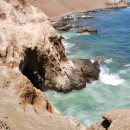
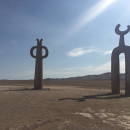
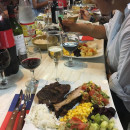
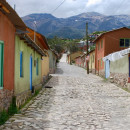
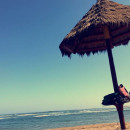
Personal Information
| How much international exposure did you have prior to this program? | 1 month - 6 months |
Review Your Program
|
* Overall educational experience
Academic rigor, intensity, resources, etc. |
This program was challenging, in a good way. Students learn from lectures, but the most valuable information is gathered from life experiences throughout the 4 months. This is a writing intensive program, but all of the essays are manageable and graded appropriately according to your spanish level. |
|
* Host Country Program Administration
On-site administration of your program |
|
|
* Housing:
How satisfied were you with your living arrangements? |
The homestay experiences vary. Some families are very inclusive, outgoing, and work to make you feel like part of their family. Other situations are friendly, but feel more like a landlord-renter relationship. |
| * Food: |
I struggled with the food situation. It was my own fault. I am a very adventurous eater, but I am vegetarian (pescatarian) and highly lactose intolerant. I did not properly express my diet desires. If you are explicit, and frequently reinforce your eating limitations, you will eat as you choose. If you don't, you'll struggle. Like I did. Other students struggled more as their diet restrictions changed throughout the program. Other than the restriction issue, don't expect Chilean food to be mind-blowing, delicious or flavorful. However, Peruvian food is all of those things. Chilean staples are bread and avocado spread (simply called palta, not guacamole), so get ready to eat way too many empty carbs. |
|
* Social & Cultural Integration:
How integrated did you feel with the local culture? |
I was well educated about the local culture and even the indigenous cultures, but I did not feel that I fulfilled the community empowerment aspect as I expected. The machismo may be hard to adjust to, especially the excessive cat-calling in Arica. But these things can be overcome. |
|
* Health Care:
How well were health issues addressed during the program? |
In extreme situations (like traveler's diarrhea or altitude sickness), healthcare was readily provided with assistance from the SIT administration. Minor (but lengthy) colds were left for you to battle on your own. |
| * Safety: |
I never felt unsafe, only momentarily uncomfortable from cat-calls. |
| If you could do it all over again would you choose the same program? |
No
I would consider Argentinian and Peruvian programs. |
Finances
|
* Money: How easily were you able to live on a student's budget?
(1 = not very easy/$200+ on food & personal expenses/week, 2.5 = $100/week, 5 = very easily/minimal cost) |
|
| Not including program expenses, about how much money did you spend on food and other expenses each week? | I spent about $60 a week on supplemental food/drinks/gifts. |
Language
| * Did your program have a foreign language component? | Yes |
|
How much did the program encourage you to use the language?
0 = No encouragement, 5 = frequent encouragement to use the language |
All of the classes are in Spanish, the discussions are in Spanish, the home stay family only speaks Spanish, interviews for your independent project are conducted in Spanish, all the writing assignments are in Spanish. At the SIT office, students are supposed to only speak Spanish but this rule was very loosely followed. |
| How would you rate your language skills at the beginning of the program? | Intermediate |
| How would you rate your language skills at the end of the program? | Advanced |
| What was the highest level language course you had completed prior to departure? | Advanced I |
| How many hours per day did you use the language? | |
| Do you have any tips/advice on the best ways to practice the language for future study abroad participants? | Read spanish news sites and look up new vocab. Find people to talk to and don't feel uncomfortable making errors. |
Other Program Information
|
* Where did you live?
Select all that apply |
|
|
* Who did you live with?
Select all that apply |
|
|
* Who did you take classes with?
Select all that apply |
|
| About how many local friends did you make that you will likely keep in touch with? |
A Look Back
| * What did you like most about the program? |
|
| * What could be improved? |
|
| * What do you know now that you wish you knew before going on this program? | It is not comprable to European programs. You will get to know one country very well, and you will live like a local, not a tourist. |








